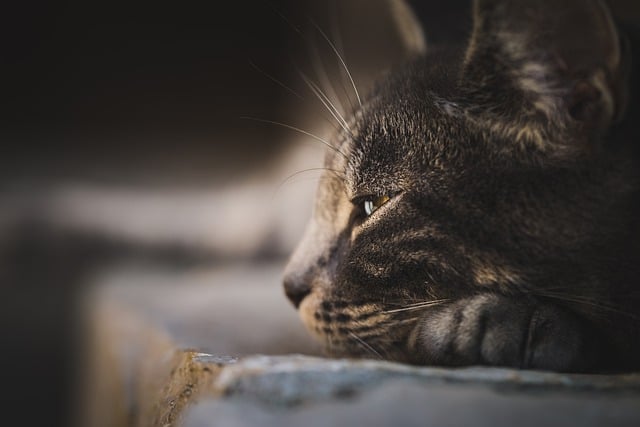Q&A Sale and purchase of Cats

Getting your Trinity Audio player ready...
|
Question
What is the ruling concerning the sale of cats? I understand that there is a difference of opinion on this matter, but couldn’t decipher why and what the actual ruling upon it is.
Answer
The legal schools have differed in relation to whether there is a prohibition on the sale and by extension purchase of a cat. Herein, we will try and present an overview of the reasoning behind the difference of opinion as it has historically arisen. In addition to that, we’ve included a full discussion on the ruling by Ibn Ḥazm from al-Muḥalla.
Broadly, those arguing that there is no prohibition in place a) have sought to argue that the aḥādith upon the topic are either not authentic or contain defects; b) which seems to be slightly more prevalent, that given the benefits accrued by possession of a cat, there is a dispensation for its sale or purchase, thereby making it lawful. The opposing view, is that the ḥadith upon this matter as cited in Ṣaḥīḥ Muslim is Ṣaḥīḥ – namely, judged to be authentic beyond reasonable doubt. Therefore, the ruling must conform to the text of revelation, whereby a prohibition is maintained. Given the various positions upon this topic, our own favours the latter or ‘opposing’ view.
Reasoning
In relation to the purchase and sale of cats, there has been disagreement amongst the legal schools on this point. Writing in Bidāyatul Mujtahid, Ibn Rushd said: ‘The proscription of charging a price for a cat is established, but the majority permit it as it is clean in essence and its benefits too are lawful.’[1] In Jāmi al-Ulum wal’Ḥikam, Ibn Rajab provides a useful overview of the topic and legal discussion among the schools. He writes:
As for the sale of cats, there has been disagreement amongst the Ulemā’ concerning its disapproval. Some have deemed it disapproved, and this is reported from Abu Hurayrah Jābir, Aṭā, Ṭāwus, Mujāhid, Jābir ibn Zaid, al-Awzā’i, and Aḥmad, in one of his narrations. He (Aḥmad) said it is less serious than the sale of the skins of predatory animals, and this is the opinion chosen by Abu Bakr from our adherents. Ibn ‘Abbās, Aṭā in another narration, al-Ḥasan, Ibn Sirin, al-Ḥakam, Ḥammād, al-Thawri, Abu Ḥanifah, Mālik, al-Shāfi’i, and Aḥmad in his most well-known opinion permitted the sale of cats. There are two narrations from Isḥāq on the matter. As for al-Ḥasan, it is reported that he disliked selling them gave a dispensation for buying them for use.
And some of these scholars did not consider the prohibition on selling them to be Ṣaḥīḥ. Ahmad said: ‘I don’t know of anything in this matter that is confirmed or Ṣaḥīḥ.’[2] He also said: ‘The aḥādith upon this matter on this topic have Iḍṭirāb (semblance of disturbance).’ Among them are those who interpreted the prohibition where there is no benefit in it, like the wildcat and similar animals. And among them are those who said: ‘He only prohibited selling them because it is degrading and lacks dignity, as they are readily available.’[3]
For the opposing view to this, al-Shawkāni provides a succinct summary of this in al-Darāri al-Muḍiyyah:
As for the non-permissibility of selling dogs and cats, it is due to what has also come in the Ṣaḥīḥayn and some others on the authority of Ibn Mas’ud, he said: ‘The Messenger of Allah, peace and blessings be upon him, forbade profiting by selling dogs.’ There is another ḥadith recorded by them on the authority of Abu Juḥayfah that is similar to that of Ibn Mas’ud. Also in Ṣaḥīḥ Muslim, may Allah the Almighty have mercy upon him, there is another ḥadith on the authority of Jābir that the Prophet peace and blessings be upon him forbade the sale of dogs and cats. It is reported in al-Nasā’i with an isnād containing narrators that are trustworthy; he said ‘The Messenger of Allah, peace and blessings be upon him forbade the price of dogs and cats, except hunting dogs.’[4]
On the last point, critics have argued that Abu ‘Abd al-Raḥman, Imām al-Nasā’i didn’t accept this narrative as noted from his comment upon it in his collection of Sunan:
أخبرني إبراهيم بن الحسن قال أنبأنا حجاج بن محمد عن حماد بن سلمة عن أبي الزبير عن جابر بن عبد الله أن رسول الله صلى الله عليه وسلم نهى عن ثمن الكلب، والسنور إلا كلب صيد
قال أبو عبد الرحمن هذا منكر
Ibrāhim ibn al-Ḥasan reported to me he said Ḥajjāj ibn Muḥammad reports from Ḥammād ibn Salamah from Abu al-Zubayr from Jābir ibn Abdullah, that the Messenger of Allah peace and blessings be upon him forbade the price of a dog and the cat, except for the hunting dog.
Abu ‘Abd al-Raḥman said: ‘This is munkar.’
In his Sunan, al-Dāraquṭni presents three narrations on this matter, all being reported by way of Ḥammād ibn Salamah from Abu al-Zubayr, the first of which is:
ثنا أبو بكر النيسابوري نا أحمد بن يوسف السلمي نا عبيد الله بن موسى نا حماد بن سلمة عن أبي الزبير عن جابر لا أعلمه إلا عن النبي صلى الله عليه وسلم أنه نهى عن ثمن الكلب والسنور إلا كلب صيد
Abu Bakr al-Nisāburi narrated to us Aḥmad ibn Yusuf al-Salami narrated to us ‘Ubaydllah ibn Musa narrated to us Ḥammād ibn Salamah narrated to us from Abu al-Zubayr from Jābir, ‘I only know it from the Prophet, peace and blessings be upon him, that he forbade the price of a dog and a cat, except for a hunting dog.’[5]
But even as Ibn Rajab concedes, Imām Muslim didn’t narrate anything by way of Ḥammād ibn Salamah reporting from Abu al-Zubayr as he has outlined in his book entitled al-Tamiyz.[6] Al-Tirmidhi is often quoted too in this discussion for a channel he brings in his Sunan, but this differs from the above, in that the narrators are by way of al-‘Amash from Abu Sufyān from Jābir. The reported matn though is the same. After citing the ḥadith al-Tirmidhi commented:
هذا حديث في إسناده اضطراب، ولا يصح في ثمن السنور، وقد روي هذا الحديث عن الأعمش عن بعض أصحابه، عن جابر واضطربوا على الأعمش في رواية هذا الحديث، وقد كره قوم من أهل العلم ثمن الهر، ورخص فيه بعضهم، وهو قول أحمد وإسحاق. وروى ابن فضيل عن الأعمش عن أبي حازم عن أبي هريرة عن النبي صلى الله عليه وسلم، من غير هذا الوجه
There is Iḍṭirāb in the isnād for this ḥadith. The ‘price of a cat’ is not correct. This ḥadith has been reported from al-‘Amash, from some of his companions, from Jābir, and they caused some confusion for al-‘Amash in this narration. There are those among the people of knowledge who disapproved of the price of a cat, and some of them gave a dispensation for it. This is the viewpoint of Aḥmad and Isḥāq. It has been narrated from Ibn al-Fuḍayl from al-‘Amash, from Abu Ḥāzim from Abu Hurairah from the Prophet peace and blessings be upon him through other than this pathway.
For Ibn Ḥazm, the matter is one of prohibition. In this respect, he places reliance upon the ḥadith as it is narrated in Ṣaḥīḥ Muslim outlining the prohibition. The full text as taken from al-Muḥalla is set out below.[7]
The Prophet ﷺ said: “The Compassionate One has mercy on those who are merciful. If you show mercy to those who are on the earth, He who is in the heaven will show mercy to you.” [Sunan Abu Dawud]
The ruling from al-Muhalla
It is not lawful to sell cats. However, if someone is compelled to acquire one due to harm arising from mice, it becomes wājib (obligatory) for those who have more than they need to give him one to prevent harm by the grace of Allah the Almighty. Similar to what we’ve said regarding one who is compelled to acquire a dog, with no difference. The proof concerning that, is what is transmitted from the channel of (Imām) Muslim:
حدثني سلمة بن شبيب قال نا الحسن بن أعين نا معقل عن أبي الزبير قال سألت جابر بن عبد الله عن ثمن الكلب والسنور؟ فقال زجر عن ذلك رسول الله صلى الله عليه وسلم
Salamah ibn Shabeeb narrated to me he said al-Ḥasan ibn ‘Ayan narrated to us Ma’qil narrated to us from Abu Zubayr, he said I asked Jābir about the price of a dog and a cat; he said: ‘The Messenger of Allah peace and blessings be upon him warned sternly about that.’[8]
Abu Muḥammad (Ibn Ḥazm) said: The reprimand is the most severe of prohibitions. And transmitted from the channel of Qāsim ibn Aṣbagh:
نا محمد بن وضاح نا محمد بن آدم نا عبد الله بن المبارك نا حماد بن سلمة عن أبي الزبير عن جابر بن عبد الله أنه كره ثمن الكلب والسنور
Muḥammad ibn Waḍḍāḥ narrated to us Muḥammad ibn Adam narrated to us Abdullah ibn al-Mubārak narrated to us Ḥammād ibn Salamah narrated to us from Abu Zubayr from Jābir ibn Abdullah that he disapproved of the price of the dog and the cat.
ومن طريق سعيد بن منصور نا أبو الأحوص عن ليث عن طاوس، ومجاهد أنهما كرها أن يستمتع بمسوك السنانير، وأثمانها
From the channel of Sa’eed ibn Manṣur: Abul’Aḥwaṣ narrated to us from Layth from Ṭāwus and Mujāhid that the two of them disapproved of the enjoyment relating to the pricing for cats.
And transmitted from the channel of Ibn Abi Shayba:
نا حفص هو ابن غياث عن ليث عن طاوس، ومجاهد أنهما كرها بيع الهر، وثمنه، وأكله
Ḥafṣ, he is Ibn Ghayath narrated to us from Layth from Ṭāwus and Mujāhid, that both of them disapproved of the sale of the cat, its price and consumption thereof.
It is the viewpoint (too) of Abu Sulaymān and all his followers. (There are) some who having no knowledge or (even) piety that would prevent them from telling a lie, made the claim that Ibn ‘Abbās and Abu Hurayrah narrated from the Prophet, peace and blessings be upon him, that the price (given) for a cat was (a matter of) ibāḥa (permissibility).
Abu Muḥammad said: We do not know of this from any reliable source that is known to the people of transmission (in ḥadith). As for what is Ṣaḥīḥ, we refute the lies of any that claims that in its entirety. With regards to fabrication in ḥadith, it persists so long as Iblis and his followers remain upon the earth. Then, if it were correct for them, it wouldn’t be a standing proof, because it would be in agreement with the original principle without doubt. When he, peace be upon him, forbade its price, the previous matter of its lawfulness was invalidated and abrogated without a doubt. Whomsoever would claim that the abrogated has now returned has told a lie, speaking falsely upon a matter without knowledge thereof. Allah forbid that what has been abrogated is to return without having a clear exposition upon it, through which Allah’s proof is established in relation to what has been abrogated and what remains thereof for his worshippers who are commanded with that. The Deen of Allah the Mighty and Exalted is greater dignified and safeguarded from that. Those arguing for its permissibility said there is an ijmā’ upon the necessity of the inclusion of the cat and the dog, regarding the permissibility (of that) to be included in (matters of) inheritance, bequests and ownership, their sale is thus lawful.
Abu Muḥammad said – this is what that they have declared as open falsehood in contradistinction to their own uṣul (foundational principles). Firstly upon that, it is a claim made without substantive evidence. Thereafter, they permit the inclusion of bees and silkworm in the matter of inheritance and bequests, as well as the dog but don’t allow the sale of these. (Moreover) they permit bequests of what has not yet been created, like dates from trees and the like thereof – and they have included these within the inheritance. Yet, despite that, they don’t allow the sales relating to them. Their inconsistency is manifest, and with Allah the Almighty is all tawfiq.[9]

Mr Chips – dumped outside Celia Hammond Animal Trust, smothered in waste oil, placed in a black bin bag and taped shut inside a dirty cat basket.
Rescued, he now has his own Instagram account.
https://www.instagram.com/celiahammondanimaltrust/reel/C53TuMMoPwe/?locale=zh_tw
Postscript
Cats (Felis silvestris catus) have had a long interaction with the human species, now established as being far longer than once thought, perhaps covering a period reaching 10,000 years.[10] Recent studies into their DNA and genome suggests that the ‘domestic’ cat despite changes arising from human interaction still retains many features that are ‘wild at heart,’ which is certainly very distinct when compared to the domestic dog.[11]
For those that are residents in the UK, obtaining a cat for the domestic dwelling shouldn’t be seen as being an insurmountable task. There are many cat charities and reputable rescue centres, the latter of particular importance, that are able to house cats free of charge. Operating as charities, they do encourage donations, but that is not generally fixed and it is there to support the work of the charity more widely. Cruelty to cats, particularly in London has become a worrying recent feature as many of the rescue centres will attest to. Mercy and kindness should always trump vanity and the need for material gain.
Endnotes
[1] Ibn Rushd, Bidāyatul Mujtahid [(English ed). Vol. 2, p. 156]
[2] In his Sunan (the Book of Wages) Abu Dāwud records: ‘Aḥmad ibn Ḥanbal narrated to us ‘Abd al-Razzāq narrated to us Umar ibn Zayd al-Ṣan’āni narrated to us that he heard Abu al-Zubayr from Jābir, that the Prophet, peace and blessings be upon him forbade the price for the cat.’ Al-Bayhaqy records similarly noting this in Sunan al-Kubra [Vol. 6, no. 11037]. There are narratives from Jābir on this in Musnad Aḥmad, but they have the narrator Ibn Lahiya in the isnād. In his commentary on the Musnad, Shu’ayb al-Arna’uṭ argues that the specific channels which are reported are ḍaef because of his presence, but the ḥadith itself is Ṣaḥīḥ given its follow-on channels and attestation.
[3] Ibn Rajab Jāmi al-Ulum wal’Ḥikam [Vol. 2, p. 453 (concerning ḥadith 45)]
[4] al-Shawkāni, al-Darāri al-Muḍiyyah, (Dar al-Kotob al-Ilmiyyah, Beirut), 1987, p. 251
[5] Sunan al-Dāraquṭni [Vol. 3, no. 3048/3050]. Print editions though carry in the footnotes that for the last two narrations, the isnād for each is ḥasan. After the third-narration (no. 3050) al-Dāraquṭni commented ‘And Ḥammād did not mention it from the Prophet, peace and blessings be upon him; this is more authentic than the previous one.’
[6] Ibn Rajab Jāmi al-Ulum wal’Ḥikam [Vol. 2, p. 453]
[7] As recorded in Ṣaḥīḥ Muslim, Kitāb al-Musāqāh. Al-Bayhaqy also records this in Sunan al-Kubra [Vol. 6, no. 11036]
[8] In the previous issue in al-Muḥalla, 1514 [Vol. 7, p. 495] Ibn Ḥazm sets out a clarification as to the matter of ‘hearing’ as it pertains to Abu Zubayr narrating ḥadith from Jābir, albeit in relation to a different point, regarding the sale of dogs. He writes: ‘As for Jābir’s ḥadith, it is from Abu al-Zubayr’s narration on his authority, and he did not hear it from him, as Abu al-Zubayr acknowledged it himself. Yusuf ibn Abdullah al-Namari narrated to me Abdullah ibn Umar and Muḥammad ibn Yusuf al-‘Azdi narrated to us Isḥāq ibn Aḥmad al-‘Uqayli narrated to us Zakariyā’ ibn Yaḥya al-Ḥulwāni narrated to us Muḥammad ibn Sa’eed ibn Abi Maryam narrated to us my father narrated to us al-Layth ibn Sa’d narrated to us, he said: Abu al-Zubayr gave me two-books. I thought to myself – if only I had asked him, did you hear all of this from Jābir? So I went back to him and inquired: did you hear all of this from Jābir? He replied, ‘Some of it I heard, and some of it I reported from him.’ So I said to him, mark out clearly what you heard. So he marked for me (the copy) I have with me.’ Abu Muḥammad (Ibn Ḥazm) said: Every ḥadith in which Abu al-Zubayr did not say that he heard it from Jābir, or that Jābir narrated it to him or that was not narrated by al-Layth (ibn Sa’d) from him by way of Jābir, was not (therefore) heard by him from Jābir, as he has admitted himself.’
With regards to the narrator himself, he is Abu al-Zubayr al-Makki – full name being Muḥammad ibn Muslim ibn Tadrus; he died in the year 126AH. In the Ṭabaqāt of Ibn Sa’d [Vol. 6, p. 30]: ‘Abu al-Zubayr: His name was Muḥammad ibn Muslim ibn Tadrus. Yazid ibn Harun reported to us from Yaḥya ibn Sa’eed from Abu al-Zubayr, mawla of Ḥakim ibn Ḥāzim ibn Khuwaylid, Muḥammad said he report from Hushaym from Ḥajjāj and Ibn Abi Layla from Aṭā, he said ‘We were with Jābir ibn Abdullah and he narrated to us. When we left him, we studied his ḥadith.’ He said: ‘It was as if Abu al-Zubayr had better memory of the ḥadith.’ The entry for Abu al-Zubayr in Tahzeeb al-Kamāl fi’ Asmā’ al-Rijāl by al-Mizzi is fairly extensive [see: Vol. 26, no. 5602, pp.402/41]. Therein, he notes the two different views on him offered by Aḥmed ibn Ḥanbal; the first, that he is weakness in him, the second, ‘la ba’sa bihi’ (there is nothing untoward with him). The assessment of other scholars is also recorded by al-Mizzi, including: ‘al-Nasā’i said: Thiqa (trustworthy)’; ‘Abu Bakr ibn Khaythama said from Yaḥya ibn Ma’een: thiqa.’ Perhaps seeking to balance views, al-Ḥāfiz records the assessment for him in al-Taqreeb [no. 6291, p. 597] as Ṣudooq (truthful) but noting that there is some element of Tadlees (misrepresentation of reporting) on occasion.
[9] al-Muḥalla [Vol. 7, no. 1515, pp. 498/499]
[10] See: ‘The Taming of the Cat,’ 2009, Carlos A. Driscoll, Juliet Clutton-Brock, Andrew C. Kitchener, and Stephen J. O’Brien, <https://www.ncbi.nlm.nih.gov/pmc/articles/PMC5790555/>
[11] See: ‘Here, kitty, kitty. The cat genome sheds light on feline evolution and domestication’, 2014 <https://www.molecularecologist.com/2014/11/17/here-kitty-kitty-the-cat-genomes-sheds-light-on-feline-evolution-and-domestication/> and Proceedings of the National Academy of Science, 2014 ‘Comparative analysis of the domestic cat genome reveals genetic signatures underlying feline biology and domestication’
Michael J. Montague, Gang Li, Barbara Gandolfi, +21 , and Wesley C. Warren
<https://www.pnas.org/doi/full/10.1073/pnas.1410083111>



